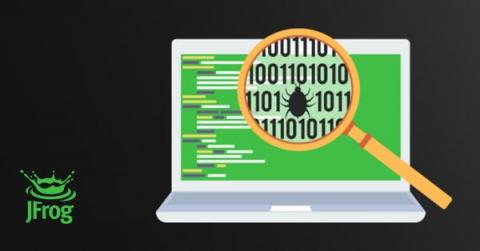Security | Threat Detection | Cyberattacks | DevSecOps | Compliance
Security
Protect Your Organization by Cultivating a Culture of Cybersecurity Awareness
The cybersecurity market offers excellent solutions and services to combat the threats that are exploited by cybercriminals. However, are these tools enough to fully protect an organization? It is clear that human error is a strong attack vector for many popular cybercrimes, so the best way to augment any security program is to create a cyber-aware workforce. After all, with the correct training and education, the front-line staff can become one of the most effective allies in preventing an attack.
Log4j Detection with JFrog OSS Scanning Tools
The discovery of the Log4Shell vulnerability in the ubiquitous Apache Log4j package is a singular event in terms of both its impact and severity. Over 1 million attack attempts exploiting the Log4Shell vulnerability were detected within days after it was exposed, and it may take years before we see its full impact.
How to Detect Log4Shell Events Using Coralogix
The Log4J library is one of the most widely-used logging libraries for Java code. On the 24th of November 2021, Alibaba’s Cloud Security Team found a vulnerability in the Log4J, also known as log4shell, framework that provides attackers with a simple way to run arbitrary code on any machine that uses a vulnerable version of the Log4J. This vulnerability was publicly disclosed on the 9th of December 2021.
Malvertising: The enemy of shoppers everywhere
You’ve seen suspicious ads. Some were obvious — ads that claim your browser is infected with malware and you need to click immediately to remedy the situation — but likely, some weren’t obvious at all. They just looked like regular ads, and might have appeared on a site you trust. You didn’t know it (and hopefully didn’t click) but some of the ads you see regularly are malvertising.
Fixing the Log4j Vulnerability with WhiteSource
The announcement of Log4j vulnerability cve-2021-44228 sent security and development teams into a tailspin and highlights the one of biggest challenges of open source security: dependency management. The open source libraries that make up up to 80% of our applications are often a tangled web of dependencies.











